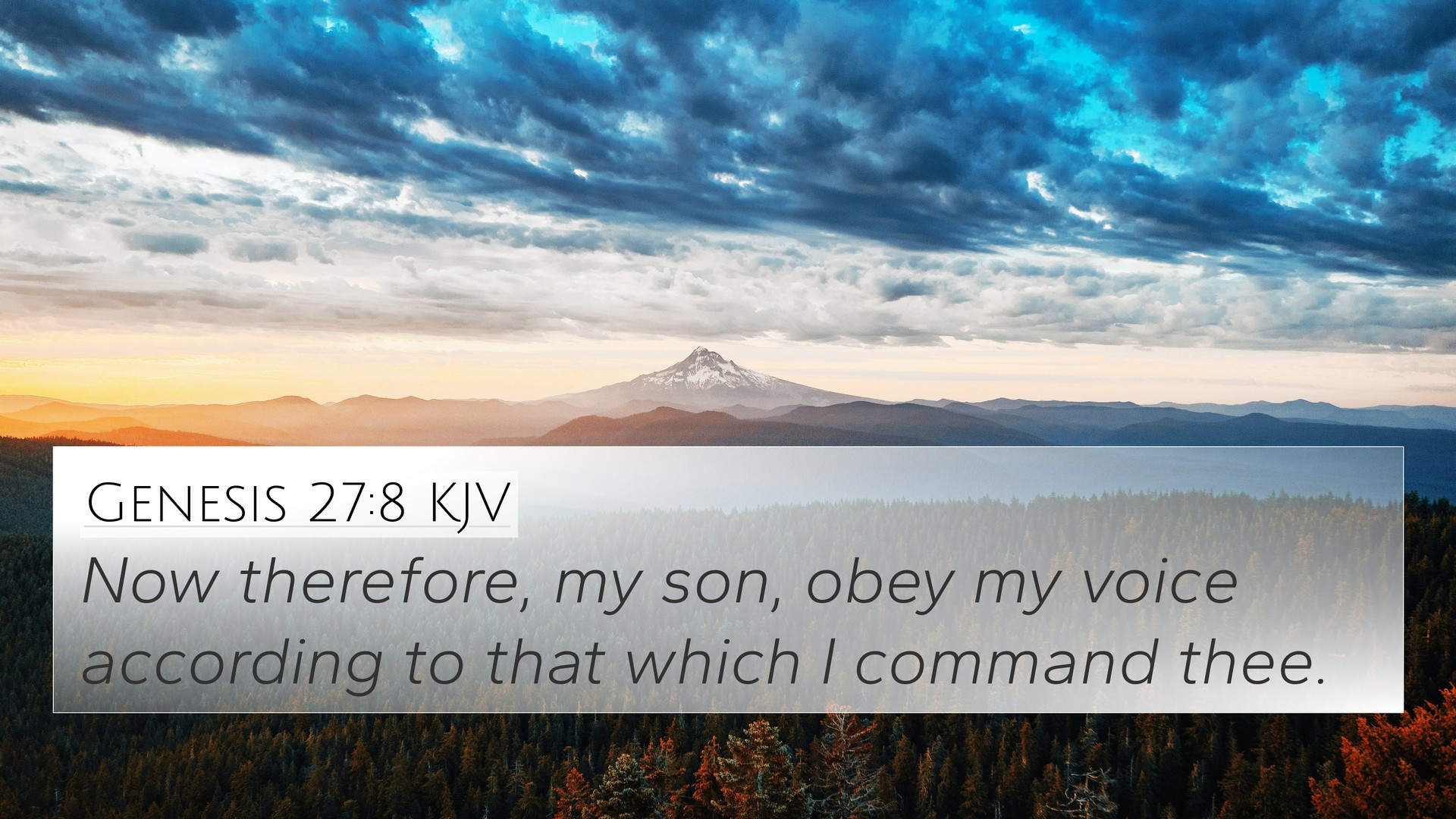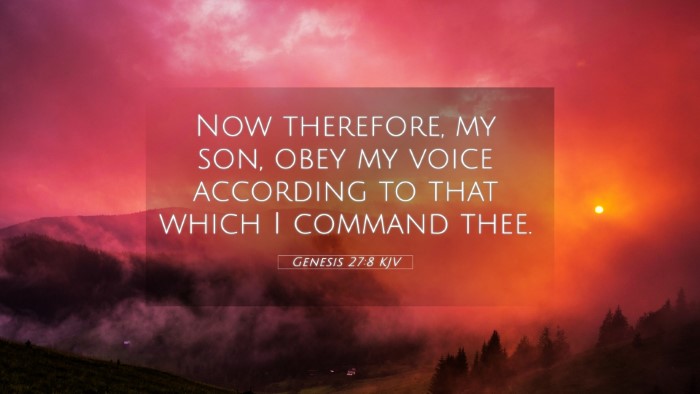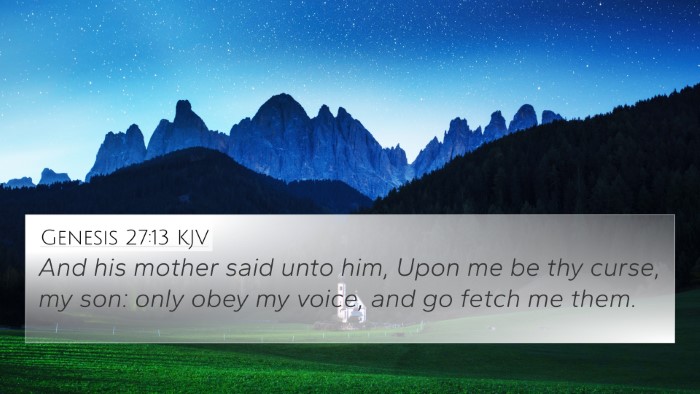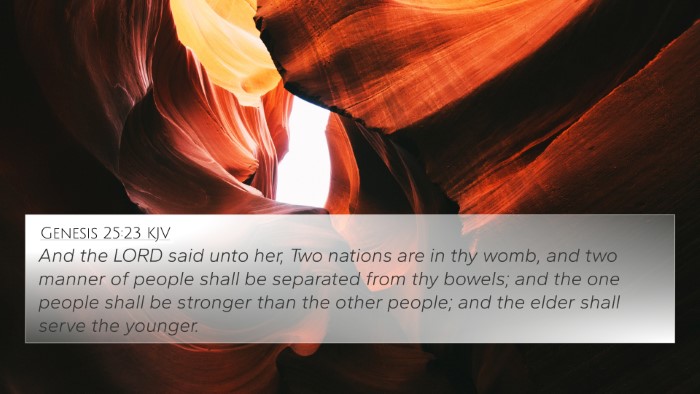Understanding Genesis 27:8
Genesis 27:8 reads: "Now therefore, my son, obey my voice according to that which I command thee." This verse is part of the narrative surrounding Rebekah and Isaac's family, wherein Rebekah instructs her son Jacob to follow her plans to secure the blessing from Isaac.
Summary and Meaning
In this passage, we see the dynamics of family relationships and the complex interplay of obedience, deception, and divine purpose. Here, Rebekah commands Jacob to heed her advice closely, emphasizing the critical nature of her instructions regarding the blessing meant for Esau.
Thematic Analysis
- Obedience: The theme of obedience surfaces prominently here, as Jacob is expected to follow his mother’s commands without question, revealing the familial loyalty and authority structures.
- Deception: The context of the blessing acquisition involves deceit, which challenges the moral implications of the actions undertaken by Rebekah and Jacob.
- Divine Sovereignty: Despite the deceptive actions, God's sovereignty is evident throughout the narrative, guiding the outcomes according to His divine plan.
Bible Verse Cross-References
To enrich the understanding of this verse, several related scriptures illustrate the broader themes of obedience, family dynamics, and divine purpose:
- Genesis 25:23: God’s prophecy concerning the rivalry between Jacob and Esau.
- Genesis 27:5: Rebekah overhears Isaac's intentions, setting the stage for her plans.
- Exodus 20:12: Honor thy father and thy mother; reflects on obedience to parental figures.
- Romans 9:10-13: Discusses God’s choice of Jacob over Esau, drawing on the themes of divine election.
- Hebrews 11:20: Mentions the faith of Isaac, foreshadowing the future blessings associated with Jacob.
- 1 Peter 3:1: Highlights the power of a wife's influence, paralleling Rebekah's role in guiding Jacob.
- 2 Timothy 3:16: All scripture is given by inspiration; deepens the understanding of the authority behind biblical instructions.
Comparative Analysis
This verse features prominently in discussions around Bible verse parallels with other instances of familial obedience (such as Exodus 1:17, where the Hebrew midwives disobey Pharaoh out of reverence for God) and deception leading to significant outcomes (such as 2 Samuel 15:5 with Absalom). Understanding these connections provides rich context for comprehending divine orchestration in humanity's moral complexities.
Tools for Cross-Referencing
To further explore the themes presented in Genesis 27:8, various tools for Bible cross-referencing can be utilized:
- Bible Concordance: A useful resource for finding specific verses and identifying similar themes.
- Bible Cross-Reference Guide: Essential for establishing links between different scriptures that share thematic or theological elements.
- Cross-Reference Bible Study: A method to dive deeper into interconnected biblical narratives, enhancing understanding of scripture.
Using Cross-References Effectively
Knowing how to find cross-references in the Bible can significantly improve one’s study. By identifying connections between Old and New Testament scriptures or detailed cross-references between Gospels, the reader can build a cohesive understanding of biblical truths as they relate to one another.
Conclusion
Genesis 27:8 serves as a pivotal moment in the Jacob and Esau narrative, emphasizing obedience, divine prophecy, and the complexities of family relationships. Engaging with cross-references helps elucidate the broader implications of this verse within the tapestry of scripture, revealing how these biblical texts engage in Inter-Biblical dialogue and outline thematic continuities and divergences.
Further Reflection
Consider exploring questions such as: What verses are related to the dynamics between Jacob and Esau? How do familial roles influence the unfolding of God’s plan? These reflections can lead to deeper insights and understanding of the intricacies woven throughout the Scriptures.








